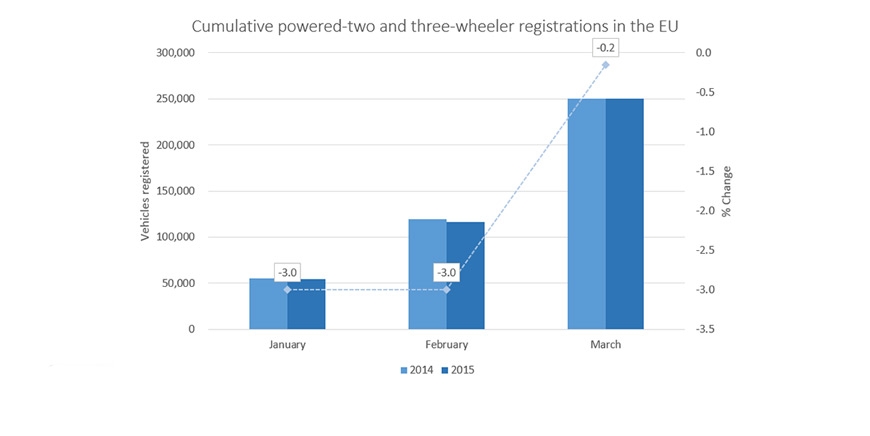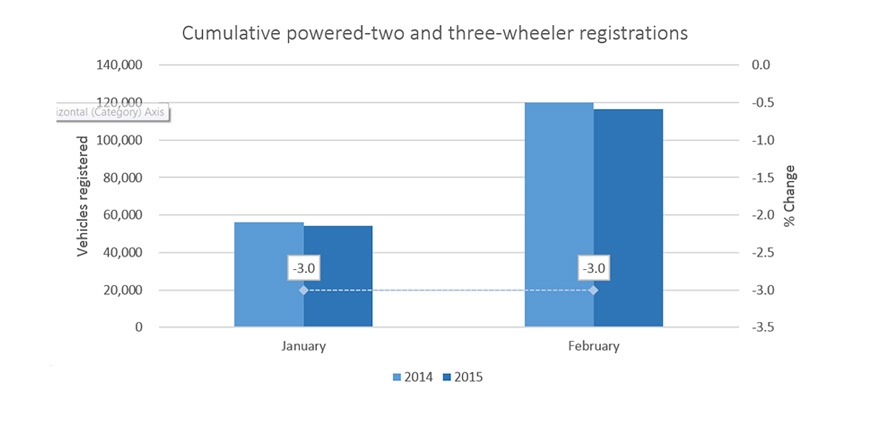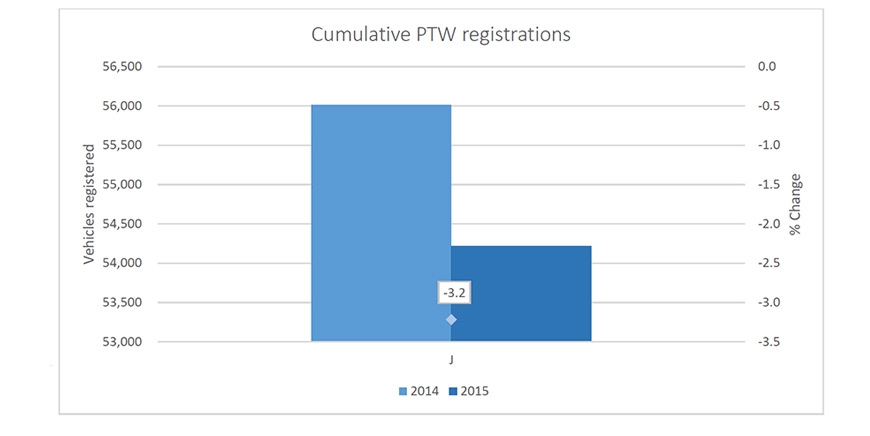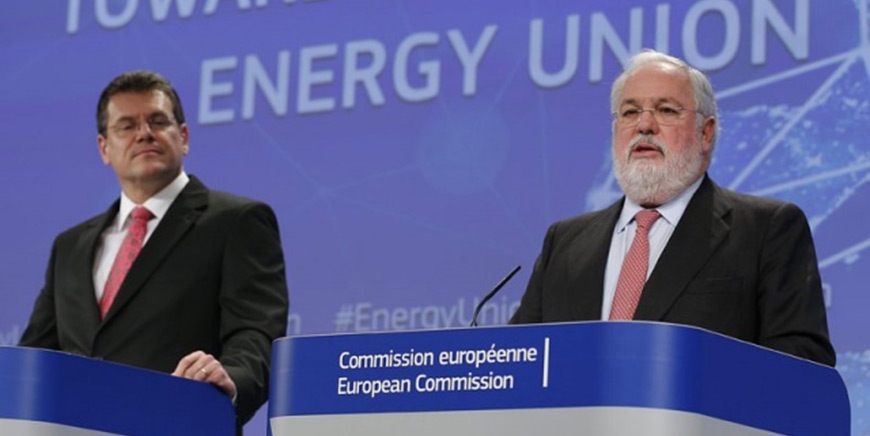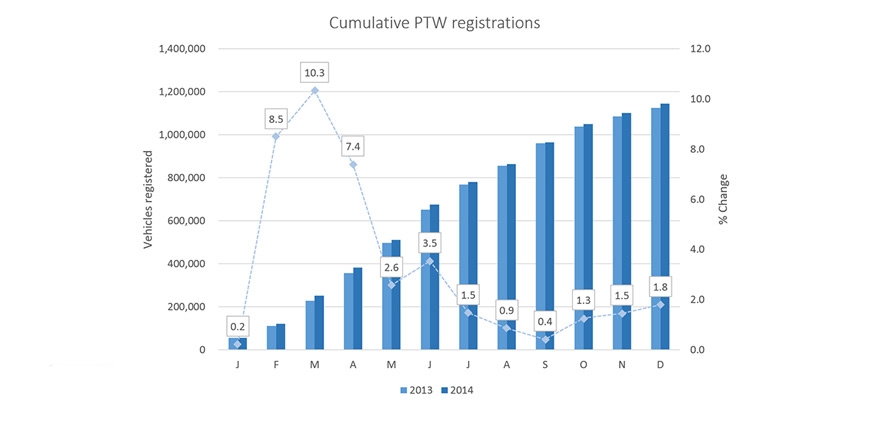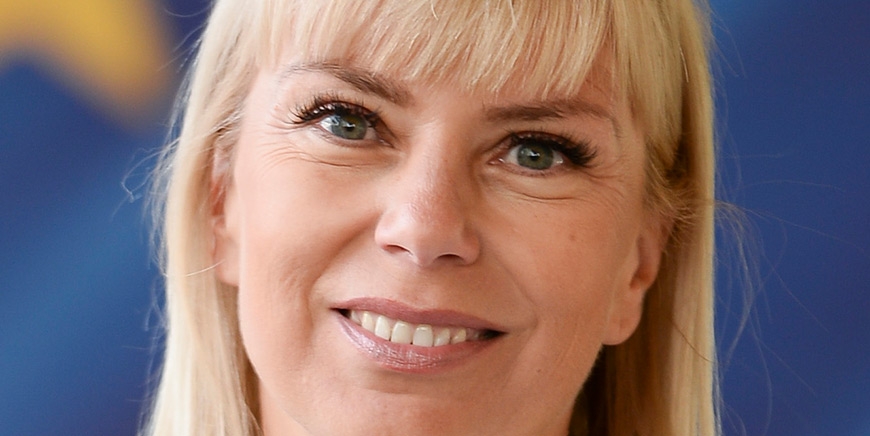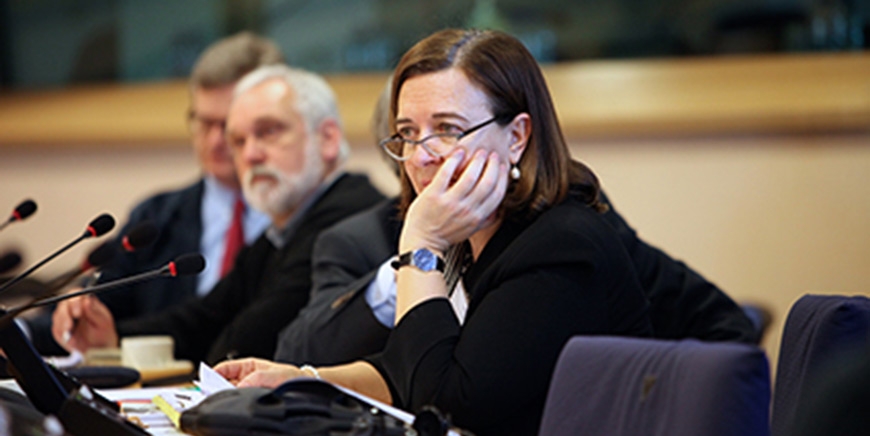A total of 250,080 powered-two and three-wheelers were registered during the first three months of 2015 in the EU.
Registrations performed positively in Spain (27,920 units, +18.1%), the UK (25,394 units, +11.8%), and Germany (47,590 units, +0.2%). They decreased in Italy (40,660 units, -4.6%) and France (49,260 units, -6.2%).
This represents a minor decrease (0.2%) compared to the 250,460 units registered during the same period of 2014.
Motorcycle registrations
Cumulative motorcycle registrations grew by 4% during the first three months of 2015 on a year-on-year basis. A total of 189,570 motorcycles were registered in January and February 2015, against 182,270 during the same period of 2014.
Year-on-year motorcycle registrations increased in key European markets including Spain (24,700 units, +19.1%), the UK (23,465 units, +14.3%) and Germany (40,050 units, +3.8%).
Registrations decreased in Italy (35,810 units, -1.5%) and France (33,475 units, -3.6%).
Moped registrations
A total of 60,510 mopeds were registered during the first three months of 2015 in the EU, whilst 68,180 mopeds had been registered during the same period of 2014, representing a decrease of 11.3%.
Registrations increased in Spain (3,220, + 11.4%), although they decreased in France (15,790 units, -11.1 %), UK (1,930 units, -11.9%), Germany (7,540 units, -15.5%) and Italy (4,850 units, -22.4%).
Documents available to download
ACEM - Statistical press release - March 2015.pdf [0.27 MB]
ACEM - Statistical data - March 2015.xls [0.25 MB]

